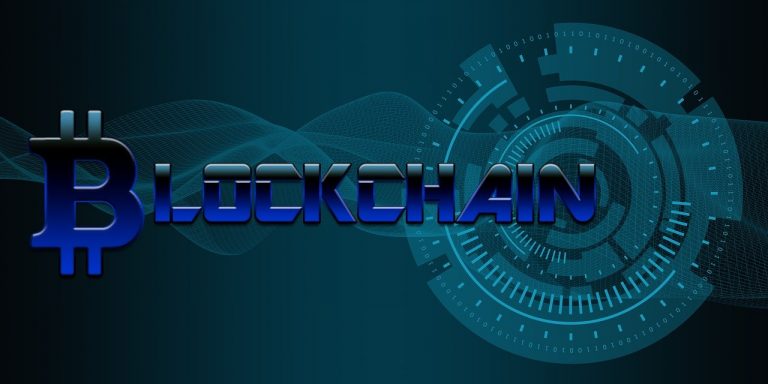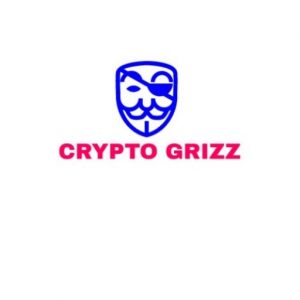Blockchain Platforms That Solve Problems
Blockchain technology is built on a distributed ledger that is both transparent and immutable
They have evolved to help facilitate secure online business transactions by eliminating the need for a central third party

A Comprehensive List of Blockchain Platforms
In a world where we have to trust people and institutions to keep our finances safe and deliver the food we eat, blockchain technology is revolutionary. Blockchain technology is built on a distributed ledger that is both transparent and immutable. It was originally designed to track digital currency like Bitcoin among other uses. But today, it has evolved to help facilitate secure online business transactions by eliminating the need for a central third party. Below, we list the top blockchain platforms.
1. Aion
Aion is a third-generation blockchain network that will enable an organization to Federate, Scale and Spoke.
Consensus: Proof-of-Intelligence Staking
language: Aion, Solidity
Website: aion.network
2. ArcBlock
ArcBlock, built with an open standard, is a platform and an ecosystem for building and deploying decentralized blockchain applications.
Consensus: Algorand based
language: –
Website: www.arcblock.io
3. Ardor
Ardor is a blockchain-as-a-service-platform that evolved from the Nxt blockchain.
Consensus: Proof of Stake
language: Java
Website: www.ardorplatform.org
4. Cardano
Cardano, the first blockchain platform to evolve out of a scientific philosophy and a research-first driven approach, is built by a global team of leading academics and engineers.
Consensus: Proof of Stake
language: Plutus
Website: www.cardano.org/en/home
5. Corda
Corda, developed by R3, is an open source blockchain platform to record, manage and synchronise agreements and transfer value. It allows you to build interoperable blockchain networks that transact directly, in strict privacy.
Consensus: Pluggable Consensus
language: Kotlin, Java etc.
Website: www.corda.net
6. Enigma
Enigma is a permissionless peer-to-peer network. With Enigma, “smart contracts” become “secret contracts”, where input data is kept hidden from nodes in the Enigma network that execute code.
Consensus: Proof of Stake
language: Solidity
Website: enigma.co
7. EOS
EOSIO is a free, open-source blockchain software protocol that provides developers and entrepreneurs with a platform on which to build, deploy and run high-performing decentralized applications.
Consensus: Delegated Proof of Stake (dPoS)
language: C++, WebAssembly
Website: eos.io
8. Ethereum
Ethereum, developed by the Ethereum Foundation, is a decentralized platform that runs smart contracts.
Consensus: Proof of Work
language: Solidity, Serpent, LLL
Website: www.ethereum.org
9. Hyperledger Fabric
Hyperledger Fabric is a blockchain framework implementation and one of the Hyperledger projects hosted by The Linux Foundation. It allows components such as consensus and membership services to be plug-and-play.
Consensus: SOLO, Kafka
language: Go, Java
Website: www.hyperledger.org/projects/fabric
10.Hyperledger Sawtooth
Hyperledger Sawtooth is an enterprise blockchain platform for building distributed ledger applications and networks. Sawtooth is an open source project under the Hyperledger umbrella.
Consensus: Proof of Elapsed Time (PoET)
language: Python, C++, Go, Java, JavaScript, Rust etc.
Website: www.hyperledger.org/projects/sawtooth
11. ICON
ICON is a decentralized blockchain network where various blockchain-based independent Communities are connected to form a greater community. At the core of ICON is a high-performance blockchain loopchain.
Consensus: Loop Fault Tolerance (LFT)
language: Python
Website: icon.foundation
12. IOTA
IOTA is a next generation permissionless distributed ledger that utilizes a novel invention, called a “Tangle”, at its core.
Consensus: Coordinator
language: Rust, Go, Javascript, Java, C++
Website: www.iota.org
13. Komodo
Komodo is a secure, independently scalable, and fully interoperable blockchain ecosystem that provides end-to-end blockchain technology solutions.
Consensus: delayed Proof of Work (dPoW)
language: Any
Website: komodoplatform.com
14. Lisk
Lisk is a blockchain application platform created to bring blockchain technology to the world through an SDK (Sidechain Development Kit) written in JavaScript.
Consensus: Delegated Proof of Stake (DPoS)
language: Javascript
Website: lisk.io
15. MultiChain
MultiChain is an offtheshelf platform for the creation and deployment of private blockchains, either within or between organizations.
Consensus: –
language: Any
Website: www.multichain.com
16. Neblio
A secure, distributed, blockchain platform built for enterprise applications and services.
Consensus: Proof of Stake
language: Java, Javascript, Ruby, Python, Go, C#, PhP, Objective-C
Website: nebl.io
17. NEM
NEM’s blockchain platform was designed and coded from the ground up for scale and speed.
Consensus: Proof of Importance
language: Any
Website: nem.io
18. NEO
NEO, founded in 2014, is a non-profit community-driven blockchain project.
Consensus: Delegated Byzantine Fault Tolerance (dBFT)
language: C#, VB.Net, F#, Java, Kotlin, Python
Website: neo.org
19. Nxt
Nxt is an advanced open source blockchain platform that includes many core-level features, such as a Decentralized Asset Exchange, Marketplace, and Voting system.
Consensus: Proof of Stake
language: –
Website: nxtplatform.org
20. OpenChain
Openchain is an open source distributed ledger technology that is suited for organizations wishing to issue and manage digital assets in a robust, secure and scalable way.
Consensus: Partionned Consensus
language: Any
Website: www.openchain.org
21. Qtum
A decentralized and open-source smart contracts platform and value transfer protocol. Qtum employs a decentralized governance protocol allowing for blockchain parameters like the block size, block time, gas schedules, and the minimum gas price for contracts to be modified without requiring a fork.
Consensus: Proof of Stake
language: Solidity
Website: qtum.org/en
22. Smilo
Smilo is the hybrid blockchain platform that warrants transparency whilst protecting individual’s personal data.
Consensus: Smilo BFT+
language: lidity, Javascript, Java, Python
Website:
23. Stellar
Stellar is open-source, distributed payments infrastructure using blockchain technology.
Consensus: Stellar Consensus Protocol
language: Go, Java, Javascript
Website: www.stellar.org
24. Straitis
Stratis offers full service capabilities for the development, deployment and management of enterprise blockchain applications and solutions utilizing C# on the .Net framework.
Consensus: Proof of Stake
language: C#
Website: stratisplatform.com
25. Tezos
Tezos is a blockchain that can evolve by upgrading itself. Stakeholders vote on amendments to the protocol, including amendments to the voting procedure itself, to reach social consensus on proposals.
Consensus: Proof of Stake
language: Michelson
Website: tezos.com
26. Wanchain
Wanchain supports cross-chain transactions between mainstream public chains, between private chains, and between public and private chains.
Consensus: Proof of Stake
language: Solidity
Website: wanchain.org
27. Waves
Waves Platform is a comprehensive blockchain platform that features fiat gateways, smart contracts, mobile wallet, token issuance, a DEX (decentralized exchange), and more.
Consensus: Proof of Stake
language: RIDE
Website: wavesplatform.com
28. Zilliqa
Zilliqa is a high throughput public blockchain platform designed to scale to thousands of transactions per second.
Consensus: Practical byzantine fault tolerance (PBFT)
language: Scilla
Website: zilliqa.com

Blockchain Platforms That Solve Problems

VISIT OUR OTHER SITES:
Check Out Our Crypto Privacy Site: CryptoGrizz.com
Check Out Our Crypto Trading Site: CryptoGrizzTrader.com
Check Out Our Low Cap Altcoin Site: CryptoGrizzAltcoins.com
Check Out Our Prepper Site: PrepperGrizz.com
Check Out Our Global Crypto Survival Site: GlobalCryptoSurvival.com